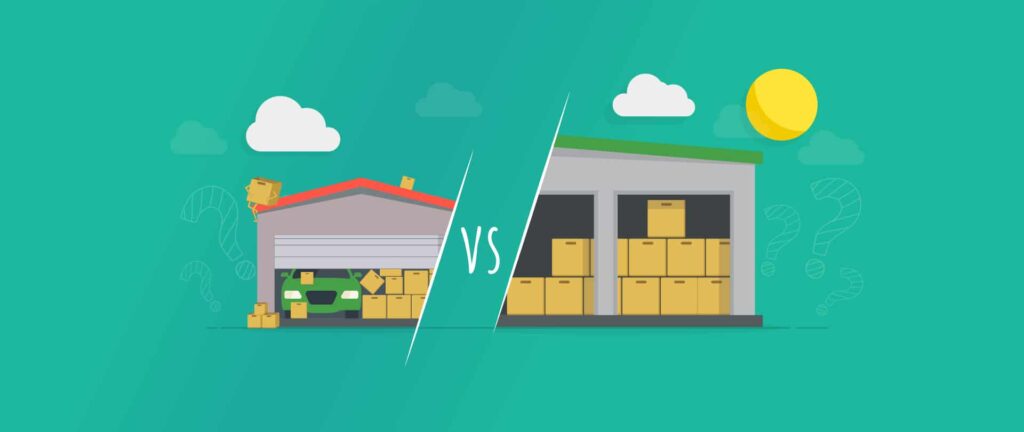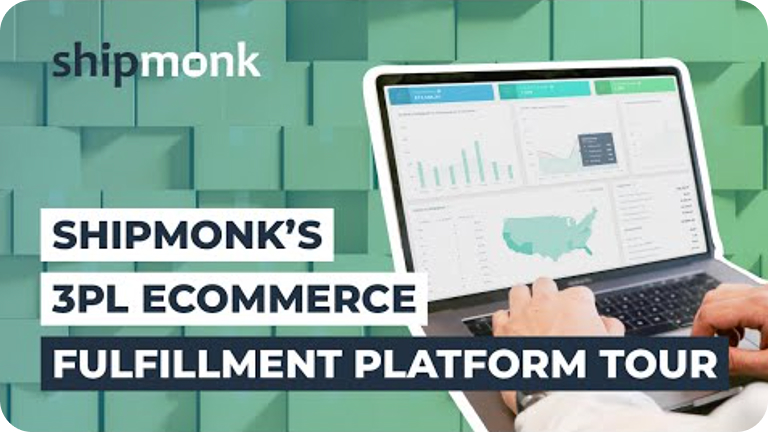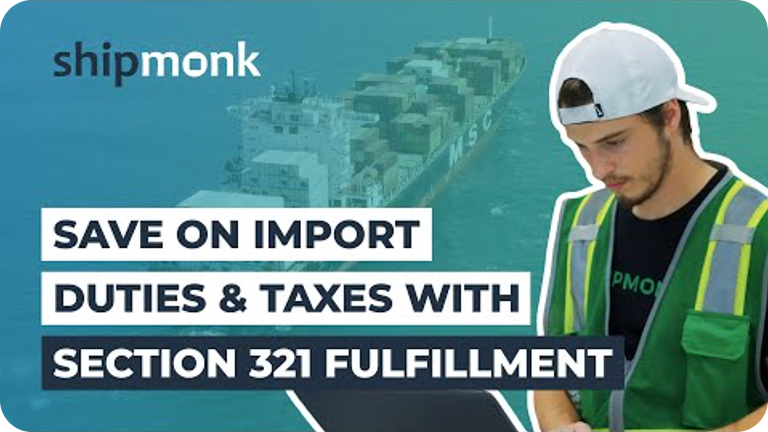You’ve started your online business. Great! Orders are flowing in. Even better! But wait… how the heck are you going to get these orders out? That, our friends, is the question virtually every online business owner will have to answer at some point. If you’re reading this article, chances are that this is your time to do so!
Luckily, fulfillment is not only what we do, it’s who we are. In this article, we’ll help you weigh the pros and cons between in-house and outsourced fulfillment so that, by the time you’ve finished reading, you’re prepared to make an educated decision. Ready? Let’s dive in!
What’s In-House Fulfillment?
Unless you’re an eCommerce unicorn whose business is booming from day one, it’s likely you’ll start out fulfilling orders in-house. We can see why that is — in-house fulfillment is super convenient! Simply set up shop in your garage, living room, or even bedroom. Although you’ll need to spend some money upfront on tools and supplies, you’ll probably find this to be the easiest and fastest option in the beginning.
For some businesses, in-house fulfillment can be a permanent option. It’s a great fit for companies with highly customized products, low order volume, or only seasonal shipments. For others, however, it’s a surefire way to sabotage your business’s growth and can become virtually impossible to manage once your order volume begins to increase. You know what they say: Fulfillment is in the eye of the beholder.
When Can In-House Fulfillment Take a Turn?
The truth is, packing and shipping boxes isn’t everyone’s cup of tea. Nor is it the best way for a business owner to spend his or her time. Think about it: You could be expanding your marketing efforts, responding to customers, talking to vendors, adding to your inventory, or contemplating how to conquer the world… Instead, you’re hunched over your grandmother’s floral couch from the ‘70s, fingers sticky with tape, packing your 100th order for the day.
In short, there are a million different reasons for you to reconsider in-house fulfillment. A rapidly diminishing amount of space, lack of access to competitive shipping rates and methods, insufficient technology, and mispicked or damaged orders are all things that could put a serious damper on your in-house operation. You could just be overwhelmed by all the responsibilities and technicalities that come with fulfilling your orders in-house. After all, you signed up to be an eCommerce business owner, not a logistics expert.
What is Outsourcing Fulfillment?
You’ve packed and shipped your own orders. You’ve considered, or even attempted, to rent your own warehouse space. Now it’s time to bring out the big guns: 3PLs, also known as fulfillment providers. You may still have 99 problems, but fulfillment won’t be one of them!
The advantages of outsourcing your fulfillment operations are numerous. For one, you’ll never have to worry about running out of space again! 3PLs have you covered with a wealth of resources you would have a harder time accessing on your own, and space is one of them. Speaking of resources, fulfillment providers negotiate their rates with other vendors, like shipping carriers and packaging companies, and pass off these discounted rates to their customers. Chances are, the rates you’ll secure with a 3PL will be significantly cheaper than what you can procure on your own.
One of the most important things a fulfillment partner can provide you is support. Want to venture out into the (complicated) world of international orders? They can help you with the paperwork and shipping regulations. Want to expand your online business into retail? They can make sure your products meet the requirements of big name retailers. Want to optimize your process? That’s what fulfillment providers are there for! This kind of support takes the weight off your shoulders and serves as the foundation for scaling your business.
Is Outsourcing Fulfillment Right for Me?
Despite its benefits, outsourcing is not for everyone, including those who:
- have low order volume or a low revenue stream
- have oversized, hazmat, fragile, or otherwise difficult items (like bicycles or baby killer whales)
- have low-ticket, custom, or one-off items
Additionally, if you’re still figuring out your business operations, it might be best to leave fulfillment for another time. Communication is key in any relationship, and the same applies to a business partnership. If you’re not sure of what you want, it’ll be impossible to set manageable, clear expectations for your 3PL. This kind of oversight could add unwanted, and unneeded, tension to your operations.
If outsourcing isn’t in the cards for you now doesn’t mean it won’t be in the future. It simply means that you need to keep a close eye on your business and stay flexible when considering your options. It might very well be worth it to contact different 3PLs to compare the different ways they handle fulfillment.That way, you’ll be able to make a thoughtful, conscientious decision when the time does come.
As you can see, there’s more to fulfillment than meets the eye! It’s a core element of any business, yet it often doesn’t get the discussion and prioritization it deserves. To some business owners, their next steps will be obvious, while others will have a harder time figuring it all out. If you fall under the latter category, we encourage you to shoot us a line!





